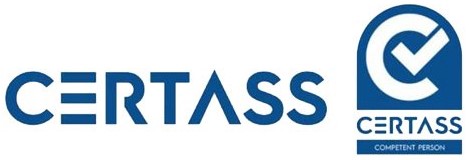Learn how Nolvadex, a medication commonly used to treat breast cancer, can also lower blood pressure. Find out how it works and its potential benefits for individuals with hypertension.
| Payment: | Bitcoin, LiteCoin, Zelle, Credit Cards, Western Union, MoneyGram |
| Delivery: | Express (2-5 days), Fedex, DHL |
| Prescription: | OVER THE COUNTER |
| Where to Buy STEROIDS online? | https://sp14.edu.pl |
Where to Buy Anabolic Steroids Online:
Nolvadex for Lowering Blood Pressure
Popular Questions about Nolvadex lower blood pressure:
What is Nolvadex?
Nolvadex is a medication that is commonly used to treat breast cancer. It works by blocking the effects of estrogen in the body, which can help to slow down or stop the growth of cancer cells.
Can Nolvadex be used to lower blood pressure?
Yes, Nolvadex can be used to lower blood pressure. Studies have shown that Nolvadex can help to reduce blood pressure in individuals with hypertension, especially when used in combination with other medications.
How does Nolvadex lower blood pressure?
Nolvadex can lower blood pressure by blocking the effects of estrogen in the body. Estrogen can contribute to the narrowing of blood vessels, which can increase blood pressure. By blocking estrogen, Nolvadex helps to relax blood vessels and improve blood flow, resulting in lower blood pressure.
Are there any side effects of using Nolvadex to lower blood pressure?
Like any medication, Nolvadex can have side effects. Some common side effects include hot flashes, nausea, and vaginal dryness. However, these side effects are usually mild and temporary. It is important to talk to your doctor before starting Nolvadex to discuss the potential risks and benefits.
How long does it take for Nolvadex to lower blood pressure?
The time it takes for Nolvadex to lower blood pressure can vary depending on the individual. Some people may start to see a decrease in blood pressure within a few weeks of starting the medication, while others may take longer. It is important to continue taking Nolvadex as prescribed by your doctor and to monitor your blood pressure regularly.
Can Nolvadex be used as a standalone treatment for high blood pressure?
No, Nolvadex is not typically used as a standalone treatment for high blood pressure. It is usually prescribed in combination with other medications, such as diuretics or beta blockers, to effectively lower blood pressure. Your doctor will determine the best treatment plan for your specific condition.
Is Nolvadex safe for everyone to use?
Nolvadex may not be safe for everyone to use. It is important to talk to your doctor before starting Nolvadex to discuss your medical history and any other medications you are taking. Your doctor will be able to determine if Nolvadex is a safe and appropriate treatment option for you.
Are there any lifestyle changes that can help to lower blood pressure?
Yes, there are several lifestyle changes that can help to lower blood pressure. These include maintaining a healthy weight, eating a balanced diet low in sodium and high in fruits and vegetables, exercising regularly, limiting alcohol consumption, and quitting smoking. It is important to talk to your doctor about incorporating these lifestyle changes into your treatment plan.
What is Nolvadex?
Nolvadex is a medication that is commonly used to treat breast cancer in women. It is also effective in lowering blood pressure in both men and women.
How does Nolvadex work to lower blood pressure?
Nolvadex works by blocking the effects of estrogen in the body, which can help to lower blood pressure. It also has anti-inflammatory properties that can further contribute to its blood pressure-lowering effects.
Are there any side effects of taking Nolvadex for blood pressure?
Like any medication, Nolvadex can have side effects. Some common side effects include hot flashes, nausea, and fatigue. It is important to discuss any potential side effects with your doctor before starting Nolvadex.
Can Nolvadex be used as a standalone treatment for high blood pressure?
Nolvadex is not typically used as a standalone treatment for high blood pressure. It is often prescribed in combination with other medications to effectively manage blood pressure levels. It is important to follow your doctor’s instructions and take all prescribed medications as directed.
How to order steroids online?
Nolvadex: An Effective Solution for Lowering Blood Pressure
High blood pressure, also known as hypertension, is a common health condition that affects millions of people worldwide. It is often referred to as the “silent killer” because it often has no symptoms but can lead to serious complications such as heart disease, stroke, and kidney problems. Fortunately, there are medications available that can help lower blood pressure and reduce the risk of these complications. One such medication is Nolvadex.
Nolvadex, also known by its generic name tamoxifen, is primarily used to treat breast cancer in both men and women. However, recent studies have shown that it can also be effective in lowering blood pressure. This is because Nolvadex works by blocking the effects of estrogen in the body, which can help relax and widen blood vessels, leading to a decrease in blood pressure.
Studies have shown that Nolvadex can significantly reduce both systolic and diastolic blood pressure in individuals with hypertension. It can be used as a standalone treatment or in combination with other blood pressure medications. Nolvadex is usually taken orally in the form of a tablet, and the dosage will depend on the individual’s specific condition and response to the medication.
It is important to note that Nolvadex should only be used under the guidance and supervision of a healthcare professional. They will be able to determine the appropriate dosage and monitor the individual’s response to the medication. Additionally, Nolvadex may cause side effects such as hot flashes, nausea, and fatigue, so it is important to discuss any concerns or potential interactions with other medications with a healthcare provider.
In conclusion, Nolvadex is an effective solution for lowering blood pressure in individuals with hypertension. It works by blocking the effects of estrogen in the body, leading to relaxation and widening of blood vessels. However, it is essential to consult with a healthcare professional before starting Nolvadex treatment to ensure its safety and effectiveness.
Understanding Blood Pressure
Blood pressure is the force exerted by the blood against the walls of the arteries as it flows through them. It is measured in millimeters of mercury (mmHg) and is typically represented by two numbers: systolic pressure over diastolic pressure. The systolic pressure is the higher number and represents the force when the heart contracts and pumps blood into the arteries. The diastolic pressure is the lower number and represents the force when the heart is at rest between beats.
High blood pressure, also known as hypertension, occurs when the force of blood against the artery walls is consistently too high. This condition can lead to serious health problems such as heart disease, stroke, and kidney failure. On the other hand, low blood pressure, also known as hypotension, occurs when the force of blood against the artery walls is consistently too low. This condition can cause dizziness, fainting, and in severe cases, organ damage.
Causes of High Blood Pressure
There are several factors that can contribute to high blood pressure, including:
- Genetics: Family history of high blood pressure can increase the risk.
- Diet: Consuming too much salt, saturated fat, and cholesterol can raise blood pressure.
- Obesity: Being overweight or obese puts additional strain on the heart, leading to high blood pressure.
- Lack of physical activity: Inactive lifestyle can contribute to high blood pressure.
- Stress: Chronic stress can elevate blood pressure.
- Smoking: Nicotine in cigarettes can temporarily raise blood pressure.
Monitoring and Managing Blood Pressure
Regular monitoring of blood pressure is important to detect and manage high or low blood pressure. This can be done using a blood pressure monitor, which can be purchased for home use. Lifestyle changes, such as adopting a healthy diet, exercising regularly, managing stress, and quitting smoking, can help lower blood pressure. In some cases, medication may be prescribed to control blood pressure.
| Normal | Less than 120 | Less than 80 |
| Elevated | 120-129 | Less than 80 |
| Stage 1 Hypertension | 130-139 | 80-89 |
| Stage 2 Hypertension | 140 or higher | 90 or higher |
| Hypotension | Less than 90 | Less than 60 |
It is important to consult with a healthcare professional for an accurate diagnosis and personalized treatment plan for managing blood pressure.
The Role of Nolvadex
Nolvadex, also known as tamoxifen citrate, is a medication that is commonly used to treat breast cancer. However, recent research has shown that Nolvadex can also be effective in lowering blood pressure.
One of the main reasons why Nolvadex is effective in lowering blood pressure is because it acts as an estrogen receptor antagonist. This means that it blocks the effects of estrogen in the body, which can help to reduce blood pressure levels.
Estrogen is a hormone that plays a role in regulating blood pressure. It can cause blood vessels to constrict, which can increase blood pressure. By blocking the effects of estrogen, Nolvadex helps to relax blood vessels and lower blood pressure.
Additionally, Nolvadex has been found to have anti-inflammatory properties. Inflammation can contribute to high blood pressure, so by reducing inflammation, Nolvadex can help to lower blood pressure levels.
Furthermore, Nolvadex has been shown to have antioxidant effects. Oxidative stress is a key factor in the development of high blood pressure, and antioxidants can help to reduce oxidative stress. By acting as an antioxidant, Nolvadex can help to lower blood pressure.
It is important to note that Nolvadex should only be used under the guidance of a healthcare professional. They will be able to determine the appropriate dosage and monitor its effects on blood pressure. Nolvadex may not be suitable for everyone, and there may be potential side effects or interactions with other medications.
In conclusion, Nolvadex can play a role in lowering blood pressure by acting as an estrogen receptor antagonist, reducing inflammation, and acting as an antioxidant. However, it is important to consult with a healthcare professional before starting any new medication or treatment for high blood pressure.
How Nolvadex Works
Nolvadex, also known as tamoxifen, is a medication that belongs to a class of drugs called selective estrogen receptor modulators (SERMs). It is primarily used for the treatment and prevention of breast cancer in women, but it can also be effective in lowering blood pressure.
When Nolvadex is taken, it works by blocking the effects of estrogen in the body. Estrogen is a hormone that can promote the growth of certain types of breast cancer cells. By blocking the effects of estrogen, Nolvadex helps to slow down or stop the growth of these cancer cells.
In addition to its anti-cancer properties, Nolvadex can also help to lower blood pressure. High blood pressure, or hypertension, is a condition in which the force of blood against the artery walls is too high. This can lead to serious health problems, such as heart disease and stroke.
Nolvadex helps to lower blood pressure by blocking the effects of estrogen on the blood vessels. Estrogen can cause the blood vessels to constrict, or narrow, which increases the pressure of blood flowing through them. By blocking the effects of estrogen, Nolvadex helps to relax the blood vessels and reduce blood pressure.
It is important to note that Nolvadex should only be used under the supervision of a healthcare professional. They will determine the appropriate dosage and duration of treatment based on individual factors, such as the severity of the condition and any other medications being taken.
In conclusion, Nolvadex is an effective medication for lowering blood pressure. By blocking the effects of estrogen, it helps to slow down or stop the growth of breast cancer cells and relaxes the blood vessels, reducing blood pressure. Talk to your doctor to see if Nolvadex is a suitable option for you.
Benefits of Nolvadex for Blood Pressure
Nolvadex, also known as tamoxifen citrate, is a medication that is commonly used to treat breast cancer. However, recent research has shown that Nolvadex can also be beneficial for individuals with high blood pressure.
1. Blood Pressure Reduction
Nolvadex has been found to have a positive effect on blood pressure levels. It works by blocking the action of estrogen in the body, which can help to lower blood pressure. This is particularly beneficial for individuals who have high blood pressure as a result of hormonal imbalances.
2. Cardiovascular Protection
High blood pressure is a risk factor for cardiovascular diseases such as heart attack and stroke. By reducing blood pressure, Nolvadex can help to protect the cardiovascular system and reduce the risk of these serious health conditions.
3. Improved Endothelial Function
Endothelial dysfunction is a common problem in individuals with high blood pressure. Nolvadex has been shown to improve endothelial function, which can help to enhance blood flow and reduce blood pressure.
4. Additional Benefits
In addition to its blood pressure-lowering effects, Nolvadex has been found to have other health benefits. It can help to reduce cholesterol levels, improve insulin sensitivity, and promote weight loss. These factors can also contribute to the overall reduction of blood pressure.
| Blood pressure reduction |
| Cardiovascular protection |
| Improved endothelial function |
| Additional benefits |
Overall, Nolvadex can be an effective solution for lowering blood pressure. However, it is important to consult with a healthcare professional before starting any new medication to ensure it is safe and appropriate for your specific condition.
Potential Side Effects of Nolvadex
Nolvadex, also known as tamoxifen citrate, is a medication commonly used to treat breast cancer. While it is generally well-tolerated and effective, there are potential side effects that users should be aware of.
1. Hot Flashes
One of the most common side effects of Nolvadex is hot flashes. These sudden feelings of warmth, often accompanied by sweating and redness of the skin, can be uncomfortable and disruptive to daily life.
2. Nausea
Nolvadex can cause nausea and vomiting in some individuals. This side effect can range from mild to severe and may require medical intervention or a change in dosage.
3. Fatigue
Feeling tired or fatigued is another potential side effect of Nolvadex. This can impact daily activities and may require adjustments to lifestyle or medication management.
4. Mood Changes
Some users of Nolvadex may experience mood changes, such as depression or irritability. It is important to monitor mental health while taking this medication and seek medical advice if any concerning symptoms arise.
5. Blood Clots
While rare, Nolvadex has been associated with an increased risk of blood clots. Symptoms of blood clots can include swelling, pain, or redness in the affected area. If any of these symptoms occur, medical attention should be sought immediately.
6. Eye Problems
In rare cases, Nolvadex can cause vision changes or other eye problems. If any changes in vision occur while taking this medication, it is important to consult with a healthcare professional.
7. Liver Damage
Although uncommon, Nolvadex has the potential to cause liver damage. Signs of liver damage can include yellowing of the skin or eyes, dark urine, or persistent abdominal pain. If any of these symptoms occur, medical attention should be sought immediately.
8. Increased Risk of Uterine Cancer
While Nolvadex is effective in treating breast cancer, it has been associated with an increased risk of uterine cancer. Regular gynecological check-ups are important for individuals taking this medication.
9. Allergic Reactions
In rare cases, Nolvadex can cause allergic reactions. Symptoms of an allergic reaction may include rash, itching, swelling, severe dizziness, or difficulty breathing. If any of these symptoms occur, immediate medical attention should be sought.
It is important for individuals taking Nolvadex to be aware of these potential side effects and to consult with a healthcare professional if any concerning symptoms arise. The benefits of this medication should be weighed against the potential risks, and regular monitoring is recommended to ensure optimal health and well-being.
Who Should Consider Nolvadex for Blood Pressure?
Nolvadex is a medication that is commonly used to treat breast cancer in women. However, recent studies have shown that it can also be an effective solution for lowering blood pressure in certain individuals. If you have been diagnosed with high blood pressure or are at risk for developing it, you may want to consider Nolvadex as a potential treatment option.
1. Individuals with Hormone-Related Hypertension
One group of people who may benefit from Nolvadex for blood pressure are those with hormone-related hypertension. Hormonal imbalances can often contribute to high blood pressure, and Nolvadex works by blocking the effects of estrogen in the body. By reducing estrogen levels, Nolvadex can help regulate blood pressure and lower the risk of hypertension.
2. Postmenopausal Women
Postmenopausal women are another group that may find Nolvadex beneficial for managing blood pressure. After menopause, women experience a decrease in estrogen levels, which can lead to an increased risk of developing hypertension. Nolvadex can help counteract this effect by blocking estrogen receptors and reducing blood pressure levels.
3. Individuals with a Family History of Hypertension
If you have a family history of hypertension, you may be more prone to developing high blood pressure yourself. Nolvadex can be a preventive measure in these cases, as it can help regulate blood pressure and reduce the risk of hypertension. It is important to consult with your healthcare provider to determine if Nolvadex is a suitable option for you based on your individual medical history.
4. Those with Resistant Hypertension
Resistant hypertension refers to high blood pressure that does not respond well to traditional treatment methods. If you have been diagnosed with resistant hypertension, Nolvadex may be a viable alternative for managing your blood pressure. It is important to work closely with your healthcare provider to determine the appropriate dosage and monitor your blood pressure levels regularly.
In conclusion, Nolvadex can be a valuable treatment option for individuals with hormone-related hypertension, postmenopausal women, those with a family history of hypertension, and individuals with resistant hypertension. However, it is essential to consult with your healthcare provider before starting any new medication to ensure it is safe and suitable for your specific condition.
Consulting a Healthcare Professional
Before starting any medication, it is important to consult a healthcare professional. They will be able to assess your specific medical condition and determine if Nolvadex is the right solution for you. Here are a few reasons why consulting a healthcare professional is crucial:
- Accurate Diagnosis: A healthcare professional will be able to accurately diagnose your condition and determine if Nolvadex is the appropriate treatment option. They will consider factors such as your medical history, current medications, and any underlying health conditions.
- Expert Advice: Healthcare professionals have the knowledge and expertise to provide you with the best advice regarding your health. They can explain the potential benefits and risks of taking Nolvadex and help you make an informed decision.
- Personalized Treatment Plan: Each individual is unique, and a healthcare professional will create a personalized treatment plan based on your specific needs. They will consider factors such as your age, gender, overall health, and other medications you may be taking.
- Monitoring and Adjustments: A healthcare professional will monitor your progress while taking Nolvadex and make any necessary adjustments to your treatment plan. They will ensure that the medication is effectively lowering your blood pressure and address any potential side effects.
- Overall Health Assessment: Consulting a healthcare professional allows for a comprehensive assessment of your overall health. They can identify any underlying health conditions that may be contributing to your high blood pressure and recommend additional treatments or lifestyle changes.
Remember, self-diagnosis and self-medication can be dangerous. It is always best to consult a healthcare professional before starting any new medication, including Nolvadex. They will guide you through the process and ensure that you are receiving the most appropriate and effective treatment for your condition.
Proper Dosage and Administration
When it comes to using Nolvadex for lowering blood pressure, it is important to follow the proper dosage and administration guidelines to ensure its effectiveness and safety.
1. Consultation with a Healthcare Professional
Prior to starting Nolvadex treatment, it is essential to consult with a healthcare professional, such as a doctor or pharmacist. They will be able to assess your specific condition and provide guidance on the appropriate dosage and administration.
2. Recommended Dosage
The recommended dosage of Nolvadex for lowering blood pressure may vary depending on factors such as the severity of hypertension and individual response to the medication. Typically, the initial dosage ranges from 20 to 40 mg per day.
3. Administration
Nolvadex is usually taken orally, with or without food. It is important to follow the instructions provided by the healthcare professional or the medication label. The tablets should be swallowed whole with a glass of water and should not be crushed or chewed.
4. Timing of Administration
The timing of Nolvadex administration may vary depending on the specific instructions provided by the healthcare professional. It is important to take the medication at the same time each day to maintain consistent blood levels.
5. Duration of Treatment
The duration of Nolvadex treatment for lowering blood pressure will be determined by the healthcare professional. It is important to continue taking the medication as prescribed, even if blood pressure levels improve. Abruptly stopping Nolvadex can lead to a sudden increase in blood pressure.
6. Monitoring and Adjustments
During Nolvadex treatment, regular monitoring of blood pressure levels is important to assess the effectiveness of the medication. If necessary, the healthcare professional may adjust the dosage or recommend additional medications to achieve optimal blood pressure control.
Overall, following the proper dosage and administration guidelines for Nolvadex is crucial for achieving the desired results in lowering blood pressure. It is important to consult with a healthcare professional for personalized advice and guidance.
Precautions and Warnings
1. Consult your doctor
Before taking Nolvadex to lower your blood pressure, it is important to consult your doctor. They will be able to assess your medical history and determine if Nolvadex is a suitable option for you. Your doctor will also be able to provide guidance on the appropriate dosage and duration of treatment.
2. Allergies
If you have a known allergy to Nolvadex or any of its ingredients, you should not take this medication. Make sure to inform your doctor about any allergies you have before starting Nolvadex.
3. Pregnancy and breastfeeding
Nolvadex is not recommended for use during pregnancy or while breastfeeding. It may harm the developing fetus or pass into breast milk and affect the nursing baby. If you are pregnant or breastfeeding, discuss alternative options with your doctor.
4. Blood clots
Nolvadex can increase the risk of blood clots, including deep vein thrombosis (DVT) and pulmonary embolism. If you have a history of blood clots or are at an increased risk, your doctor may advise against using Nolvadex or closely monitor your condition while on the medication.
5. Liver problems
If you have any liver problems, it is important to inform your doctor before starting Nolvadex. The medication may affect liver function, and your doctor may need to adjust the dosage or monitor your liver enzymes during treatment.
6. Side effects
Like any medication, Nolvadex can cause side effects. Common side effects include hot flashes, nausea, and fatigue. If you experience any severe or persistent side effects, contact your doctor immediately.
7. Drug interactions
Nolvadex may interact with other medications you are taking. Inform your doctor about all the medications, supplements, and herbal products you are currently using to avoid any potential interactions.
8. Regular check-ups
Your doctor may recommend regular check-ups and blood tests to monitor your blood pressure and overall health while taking Nolvadex. It is important to attend these appointments and follow your doctor’s instructions for optimal results.
9. Storage
Store Nolvadex at room temperature, away from direct sunlight and moisture. Keep it out of reach of children and pets. Do not use Nolvadex after the expiration date printed on the packaging.
10. Disposal
Properly dispose of any unused or expired Nolvadex medication. Do not flush it down the toilet or throw it in the trash. Consult your local pharmacy or healthcare provider for guidance on how to safely dispose of medication.
Combining Nolvadex with Other Blood Pressure Medications
When it comes to managing high blood pressure, it is common for individuals to take multiple medications to effectively control their condition. Nolvadex, a medication primarily used for treating breast cancer, has also been found to be effective in lowering blood pressure. However, it is important to understand how Nolvadex interacts with other blood pressure medications before combining them.
Consult with a Healthcare Professional
Prior to combining Nolvadex with other blood pressure medications, it is crucial to consult with a healthcare professional. They will be able to assess your specific medical condition and provide guidance on the appropriate combination of medications. They can also monitor your blood pressure regularly to ensure that the combination is working effectively.
Common Blood Pressure Medications
There are several common blood pressure medications that may be prescribed alongside Nolvadex. These include:
- Angiotensin-converting enzyme (ACE) inhibitors: These medications help relax blood vessels, reducing blood pressure.
- Angiotensin receptor blockers (ARBs): ARBs work similarly to ACE inhibitors, blocking the effects of angiotensin II to lower blood pressure.
- Calcium channel blockers: These medications prevent calcium from entering the heart and blood vessel walls, relaxing them and reducing blood pressure.
- Diuretics: Diuretics help the body get rid of excess water and sodium, reducing fluid buildup and lowering blood pressure.
- Beta blockers: Beta blockers reduce the heart rate and the force of the heart’s contractions, resulting in lower blood pressure.
Possible Interactions
While Nolvadex has been shown to effectively lower blood pressure, it is important to note that it may interact with other blood pressure medications. Possible interactions can include:
- The combination of Nolvadex and ACE inhibitors or ARBs may increase the risk of kidney problems.
- Nolvadex may reduce the effectiveness of calcium channel blockers.
- Combining Nolvadex with diuretics may increase the risk of dehydration and electrolyte imbalances.
- The use of Nolvadex alongside beta blockers may result in an increased risk of heart problems.
Regular Monitoring
When combining Nolvadex with other blood pressure medications, it is crucial to have regular monitoring of blood pressure and overall health. This will help ensure that the combination is effective and safe. Any changes in blood pressure or any concerning symptoms should be reported to a healthcare professional immediately.
| ACE inhibitors/ARBs | Increased risk of kidney problems |
| Calcium channel blockers | Reduced effectiveness |
| Diuretics | Increased risk of dehydration and electrolyte imbalances |
| Beta blockers | Increased risk of heart problems |











